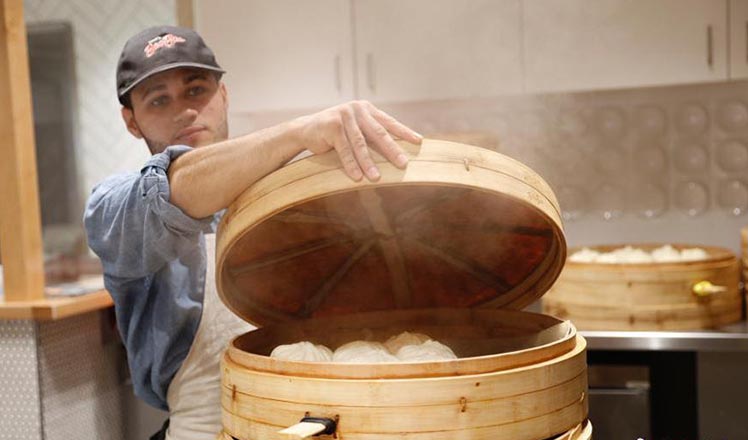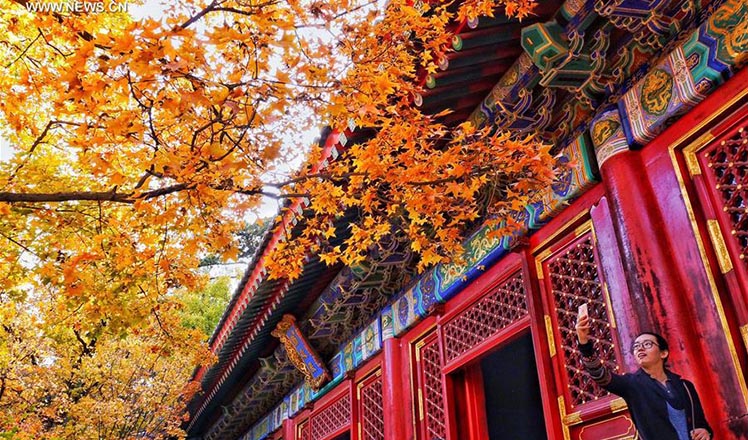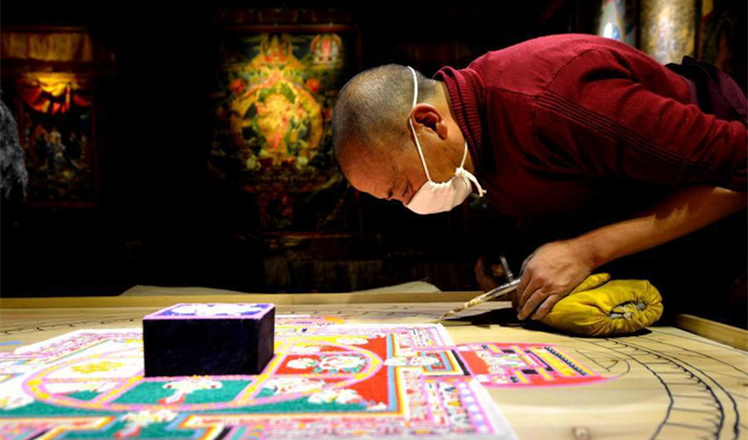Mendis: China and US will remain in "peaceful war"
Updated: 2016-10-28 11:44
By Yu Ran in Shanghai(China Daily USA)
|
|||||||||
While the US presidential election has inherently raised discussions about the possible future of China-US relationships, American sinologist Patrick Mendis believes that two countries will ultimately be able to achieve prosperity together, regardless of whether Donald Trump or Hillary Clinton wins.
"The result of the presidential election will not have a major impact on the existing commercial ties between China and the United States. I am optimistic that this relationship will remain in a state of 'peaceful war'," said Mendis, a distinguished senior fellow and affiliate professor of public and international affairs at George Mason University, during a recent visit to Shanghai.
The oxymoron "peaceful war", which refers to his belief that the two nations will collaborate on a variety of issues while also looking to outdo one another, is also the title of his new book in which he analyzed the relationship between two of the world's largest economies.

"The Chinese dream involves national rejuvenation that is powered by industrial modernization, which differs from its American counterpart where the dream is rooted in the unalienable rights of life, liberty and the pursuit of happiness," said Mendis.
"However, the two dreams may draw closer if the ties on trade and commerce contribute to the development of a new type of Sino-US major-power relationship," added Mendis, a former US diplomat and military professor.
In the book, Mendis explores the history of Sino-US relations, highlights the differences in the two nations' religions, culture and political concerns, and expresses his belief that the two will eventually create "a new Pacific world order".
Mendis, who also serves as a visiting fellow at Peking University's School of International Studies and a visiting professor of international politics at Zhejiang University in Hangzhou, added that the Chinese leadership actually bears similarities to US foreign policy traditions laid out by Thomas Jefferson and Alexander Hamilton.
"Jefferson advocated more decentralized power at the grassroots level with greater democratic governance and religious freedom, while Hamilton favored a centralized federal government with a national banking system and a strong navy to protect American trading and commercial interests," said Mendis.
"Deng Xiaoping was China's Alexander Hamilton, considering he ushered in economic reform and trade liberalization."
Mendis also spoke about how the two countries need to foster cooperative ties on the economic front seeing how both are highly influential in world trade, saying that China's One Belt One Road initiative and the US pivot in Asia should supplement and complement one another for the sake of trade, economic growth and regional stability.
The author of more than 100 books, Mendis has received numerous awards for his leadership, public service and philanthropic activities. He has lived, traveled and worked in 123 countries in his life.
Born in Sri Lanka and educated in British and American schools, Mendis first came to China in 1999. "I have my own Chinese dream which is to visit all 34 provinces. I only have four left on the list, and I hope to check them off next year," said Mendis.
yuran@chinadaily.com.cn
- Hefty award offered for deciphering oracle bone characters
- China Daily brings you 'sixth plenums' in past 35 years
- Party ramps up supervision
- 400,000 migrant workers flock to Xinjiang to harvest cotton
- China anticipates booming job market in 2016
- Online shopping platform selects cat as 'chief cute officer'
- Asia American leaders discuss civic engagement
- World's disabled get new champion
- Clinton, Michelle Obama make first joint campaign appearance
- Miss Philippines wins 2016 Miss International Beauty Pageant
- Trump's Hollywood Walk of Fame star destroyed
- Maduro activates Defense Council to seek solution to crisis

 2016 Comedy Wildlife Photography Awards Finalists
2016 Comedy Wildlife Photography Awards Finalists
 NINED VR creates splash with virtual reality products
NINED VR creates splash with virtual reality products
 Splendid Sichuan captured in photos
Splendid Sichuan captured in photos
 Chinese baozi shop gains popularity in Harvard Square
Chinese baozi shop gains popularity in Harvard Square
 Chinese mariner on record-breaking voyage goes missing
Chinese mariner on record-breaking voyage goes missing
 2045-square-meter photo mosaic breaks world record
2045-square-meter photo mosaic breaks world record
 Red leaves reveal beauty of autumn
Red leaves reveal beauty of autumn
 Tibet mandala: The world in a grain of sand
Tibet mandala: The world in a grain of sand
Most Viewed
Editor's Picks

|

|

|

|

|

|
Today's Top News
'Zero Hunger Run' held in Rome
Trump outlines anti-terror plan, proposing extreme vetting for immigrants
Phelps puts spotlight on cupping
US launches airstrikes against IS targets in Libya's Sirte
Ministry slams US-Korean THAAD deployment
Two police officers shot at protest in Dallas
Abe's blame game reveals his policies failing to get results
Ending wildlife trafficking must be policy priority in Asia
US Weekly

|

|









